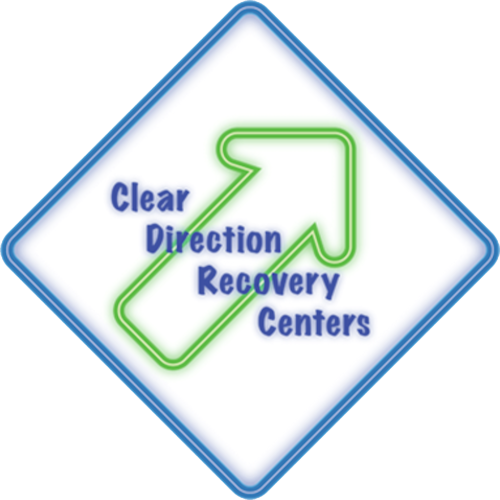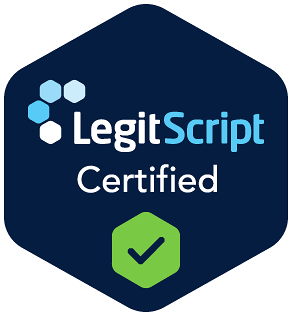Group Therapy in New Jersey: Comprehensive Services and Benefits
Many people in New Jersey are looking for ways to manage stress, anxiety, substance use, or other mental health challenges. Group therapy is one approach that brings individuals together to talk about their experiences in a supportive setting. This type of therapy is offered in various locations across the state, including hospitals, outpatient programs, and private practices.
Group therapy is often included as a core part of mental health and addiction treatment programs. It allows participants to share their stories, learn from others, and develop skills for coping with life’s difficulties. Sessions are usually led by a licensed therapist who guides the conversation and ensures the group remains a safe space for everyone.
At Clear Direction Recovery, we offer comprehensive group therapy as part of our addiction treatment programs. We work with you to find the right type of support for your recovery journey.

Group therapy is a form of psychotherapy where several people meet regularly to discuss and work through their problems together, guided by a trained therapist or counselor. The group usually includes individuals who have similar concerns or goals.
In New Jersey, group therapy sessions are led by licensed professionals such as Licensed Clinical Social Workers (LCSW) or Licensed Professional Counselors (LPC). These sessions may take place in hospitals, outpatient clinics, or private practices. The approach is designed to be accessible and straightforward, making it easier for individuals to participate and benefit from shared experiences.
Key components of group therapy include:
- Peer support: Learning from others facing similar challenges
- Professional guidance: Licensed therapist leads discussions and activities
- Shared experiences: Connecting with people who understand your struggles
- Skill building: Developing coping strategies together
How Group Therapy Works in New Jersey
Group therapy sessions in New Jersey typically include 6 to 12 participants who meet weekly for 60 to 90 minutes. The therapist creates a structured environment where everyone can share safely and learn from each other.
During sessions, participants discuss their experiences, practice new skills, and receive feedback from both the therapist and other group members. The format varies depending on the type of group therapy, but most sessions include discussion time, skill-building exercises, and homework assignments.
Common session activities:
- Check-ins about the previous week
- Learning new coping strategies
- Role-playing difficult situations
- Sharing personal experiences and insights
Contact Clear Direction Today!
Why Wait? Find The Help You Need By Reaching Out To Us Today! Our Admissions Team Is Standing By.
Types of Group Therapy Available
CBT group therapy focuses on identifying and changing negative thought patterns and behaviors. These groups are effective for treating anxiety, depression, and addiction. Sessions include group discussions, practicing new skills, and homework assignments to reinforce learning.
In CBT groups, you learn to recognize thoughts that lead to unhealthy behaviors. The group provides a safe place to practice new ways of thinking and get feedback from others who understand your challenges.
Dialectical Behavior Therapy (DBT) skills groups teach practical ways to manage emotions and improve relationships. The program covers four main areas: mindfulness, distress tolerance, emotion regulation, and interpersonal effectiveness.
DBT groups are structured like a class, with specific skills taught each week. You practice these skills in group exercises and then use them in your daily life. This approach is particularly helpful for people who struggle with intense emotions or relationship difficulties.
Addiction recovery groups focus specifically on substance use disorders. These groups combine peer support with professional guidance to help participants maintain sobriety and develop healthy coping strategies.
Recovery group activities often include:
- Sharing experiences with addiction and recovery
- Learning relapse prevention strategies
- Building accountability with group members
- Setting and working toward recovery goals
At Clear Direction Recovery, our addiction recovery groups are tailored to meet individual needs while providing the support of others on similar journeys.
Group Therapy vs Individual Therapy
Understanding the differences between group and individual therapy can help you choose the right approach for your situation.
| Feature | Group Therapy | Individual Therapy
|
| Cost per session | $40-$80 | $100-$200 |
| Privacy level | Shared with group | Completely private |
| Peer support | Strong | Limited |
| Therapist attention | Shared among group | Focused only on you |
| Schedule flexibility | Set group times | More flexible scheduling |
Group therapy offers peer support and costs less, while individual therapy provides more privacy and personalized attention. Many people benefit from combining both approaches in their treatment plan.
Who Benefits from Group Therapy
Group therapy works well for people dealing with various mental health and substance use challenges. Research shows it’s particularly effective for addiction treatment and recovery, anxiety disorders, depression, and trauma-related conditions.
Group therapy may be right for you if you:
- Want to connect with others facing similar challenges
- Learn better in social settings
- Benefit from hearing different perspectives
- Are comfortable sharing personal experiences
- Want more affordable therapy options
Young adults, women, and people from diverse backgrounds often find group settings especially supportive. The shared learning and accountability that comes from group participation can be powerful motivators for change.

Insurance and Costs in New Jersey
Group therapy in New Jersey typically costs between $40 and $80 per session, making it more affordable than individual therapy. New Jersey law requires most insurance plans to cover mental health services, including group therapy, at the same level as other medical care.
Major insurance providers in New Jersey like Horizon Blue Cross Blue Shield, Aetna, and Cigna usually cover group therapy sessions. Clear Direction Recovery helps verify your insurance coverage so you understand your costs upfront.
For those without insurance, many providers offer sliding scale fees based on your ability to pay. This makes group therapy accessible to more people who need support.
Getting Started with Group Therapy
Start by identifying what you want to work on in therapy. Are you dealing with anxiety, depression, addiction, or relationship issues? Different groups focus on different concerns, so knowing your goals helps you find the right fit.
At Clear Direction Recovery, our staff includes experienced professionals who can help match you with the most appropriate group.
Contact your insurance company to understand your mental health benefits. Ask about coverage for group therapy, your copay amount, and any limits on the number of sessions covered.
If you don’t have insurance, ask providers about self-pay rates and payment plans. Many offer reduced fees to make treatment more accessible.
Your first group therapy session typically involves introductions and an overview of how the group works. The therapist explains confidentiality rules and group guidelines to ensure everyone feels safe participating.
It’s normal to feel nervous about your first session. You can start by listening and gradually participate more as you become comfortable with the group dynamic.
Making Group Therapy Work for You
Getting the most from group therapy involves active participation and openness to feedback. Sharing your experiences honestly helps build trust within the group and accelerates your progress.
Ways to maximize your group experience:
Be open: Share your thoughts and feelings honestly with the group
Listen actively: Pay attention to others’ experiences and insights
Practice skills: Use techniques learned in group during your daily life
Respect confidentiality: Keep all group discussions private
Remember that everyone in the group is working on similar challenges. The support and understanding you receive from peers who truly get what you’re going through can be incredibly healing.
Frequently Asked Questions About Group Therapy in New Jersey
Most group therapy sessions in New Jersey last between 60 and 90 minutes and meet weekly. Some intensive outpatient programs may have longer or more frequent sessions.
Missing occasional sessions is understandable, but regular attendance helps you get the most benefit. Your therapist will work with you to catch up on what you missed and keep you connected to the group.
Yes, many people combine group and individual therapy for comprehensive treatment. This combination allows you to work on personal issues privately while also benefiting from peer support in group settings.
At Clear Direction Recovery, we’re committed to helping you find the right combination of services for your recovery journey. Our experienced team will guide you through the group therapy options that best fit your needs and goals. Contact us today to learn more about how group therapy can support your path to healing and growth.

